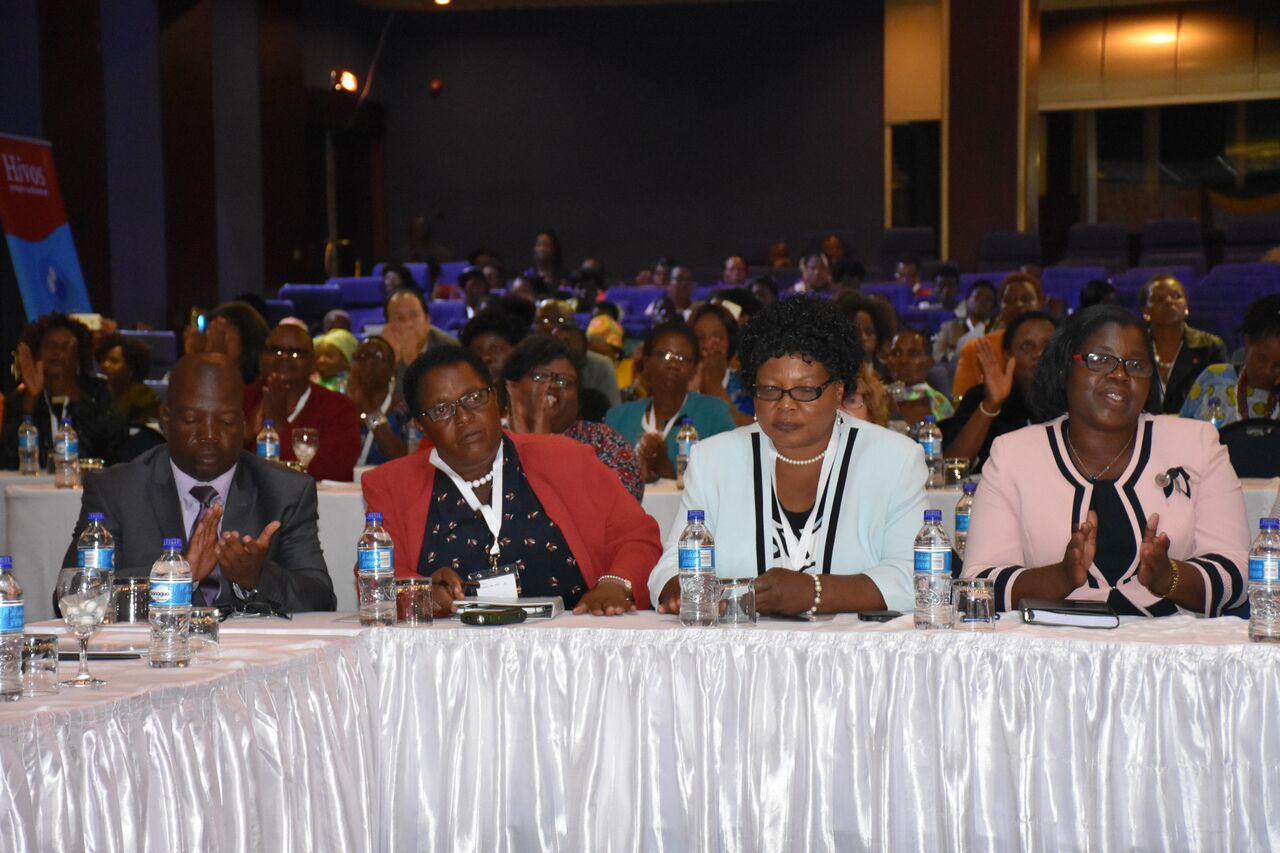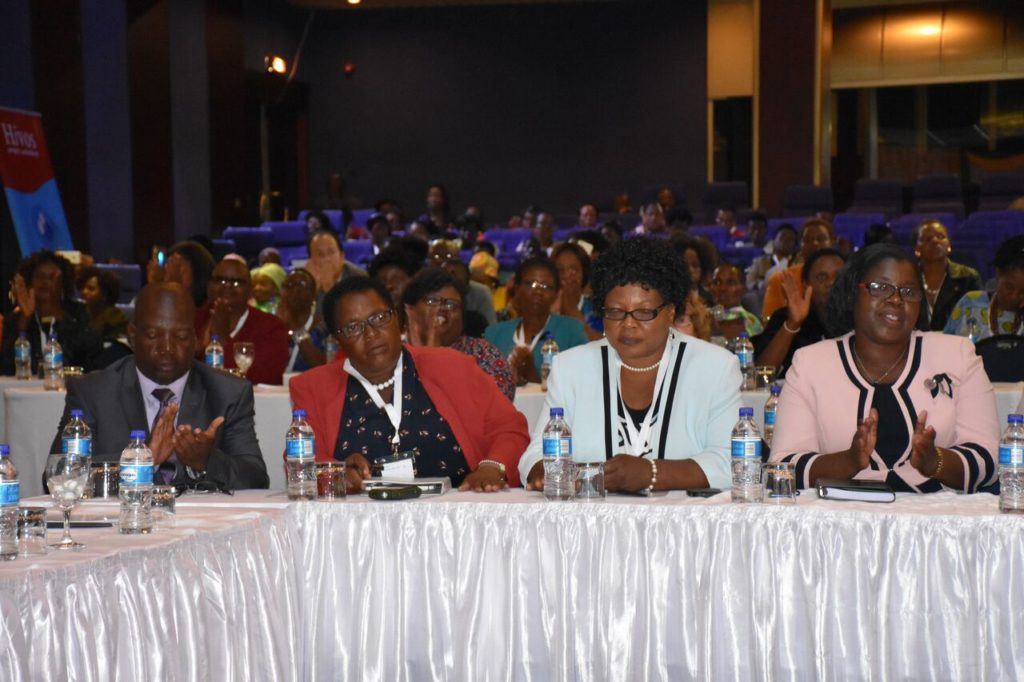Women’s Manifesto Launched
By Chido Valerie Sibalo
(Gender and Media Connect_Programme Officer)
Harare
SPEAKER of Parliament Jacob Francis Mudenda on the 6th of March 2018 called on for more concerted efforts in all spheres of life towards achieving 50-50 gender representation particularly in politics and other key positions of decision making, as the country prepares for the harmonized elections.
Mudenda made the remarks during the launch of the women’s manifesto, election women’s charter, the pledge and the 50-50 advocacy campaign.
The launch drew participants from the entire gender machinery in Zimbabwe.
He said although Zimbabwe is seemingly getting on the right track through various initiatives and legislative support, the world over there is a worrying trend of underrepresentation that must be fought from all fronts.
“The level of participation of women in politics and decision making positions remain a major concern in Zimbabwe and the world over despite the fact that they form the majority of voters and citizens as well,” Mudenda said.
“As of June 2011, Zimbabwe was ranked at position 76 out of 135 in terms of achievements in allowing women political space for representation in Parliament,” he said.
He said women’s political involvement, participation and access to formal political power structures are constrained by structural, institutional and cultural barriers that hinder entry into politics.
These include economic marginalisation, cultural dynamics underpinned by patriarchy and male chauvinism, traditions and customs that view women as mothers and housewives who must be confined to the kitchen, discriminatory laws and policies, political environment which is male dominated and the absence of positive legal framework that promotes women advancement in politics and public affairs.
Work done towards Gender Equality to date
To date, the government has passed 17 pieces of legislation to advance the gender equality and equity objective. The country has also ratified regional and international treaties that seek to promote gender equality.
According to Mudenda, this has resulted in the transformation of the political architecture of our democracy.
“To date, our Parliament has a 35% representation of female MPs because of the constitutional provisions of the quota system in the National Assembly and the zebra electoral system in the Senate which favours the selection of women candidates,” he said.
The Speaker also called for the realignment of political parties constitutions to accommodate gender equality.
“While the Constitution has provided for these positive aspects, the political party constitutions of several parties do not address gender parity and that must change.
“In that context, the efforts of advancing the Women’s Manifesto, the Women’s Election Charter, the Pledge and the 50:50 Advocacy Campaign point towards ensuring that we have more and more women MPs in the governance convergence of the country.
“To this end, the constitutional demands have been fulfilled but more needs to done to sustain the gender parity momentum,” he said.
Mudenda said there are some women who have excelled in different categories of business although there is need to improve on others such as the agriculture sector where for instance, men generally have more access to agricultural land than women.
Research shows that out of the 756 Large Scale Commercial Farms and 118 are owned by women while out of the 18 000 A2 farms, about 1 900 are owned by women
He also said women’s share in the labor force has increased over the years, the gap between the percentage of women in paid employment and that of men remains wide.
He said more initiations need to be inculcated in different sectors to improve the welfare and representation of women.
The government is working towards the establishment of the Zimbabwe Women’s Bank, the first of its kind, that is being worked upon by the Ministry of Women and Youth Affairs is a historic leveraging milestone towards achieving gender parity in the socio-economic development of our country.
Getting the ball rolling
The women’s manifesto was crafted by members of the three political parties represented in parliament namely ZANU PF, MDC T and MDC. It seeks to clarify the position of women in parliament and anchors on the past progress made by the Zimbabwe Women Parliamentary Caucus (ZWPC).
The event was supported by HIVOS and its partners in the Women Empowered for Leadership, UN Agencies, and the Ministry of Foreign Affairs of the Netherlands.





